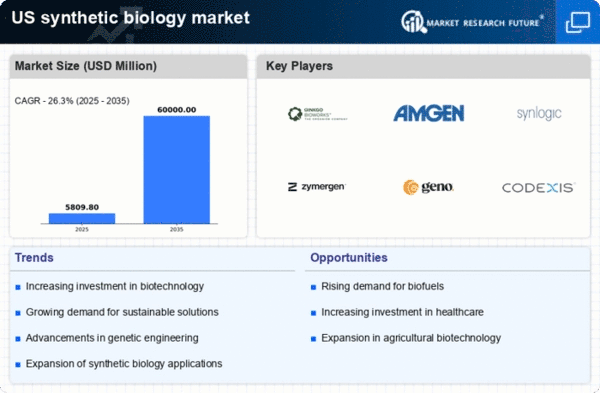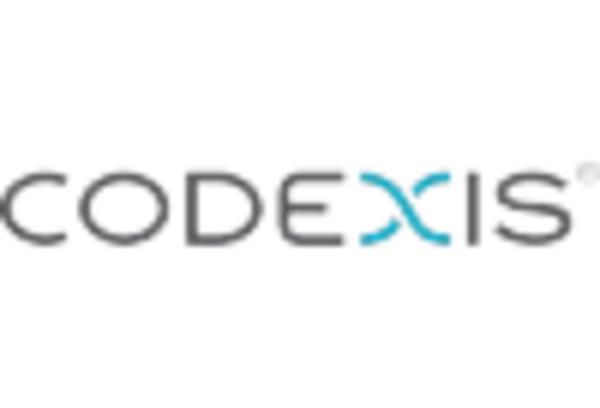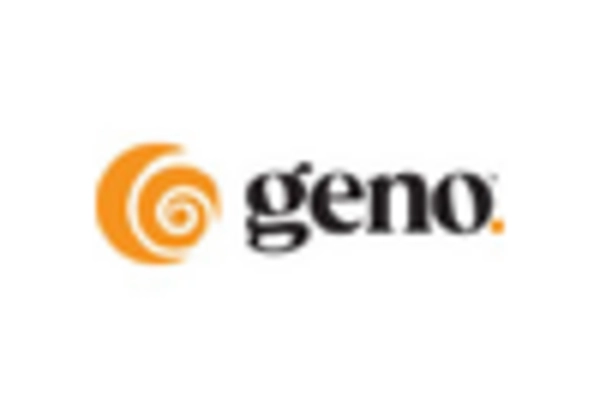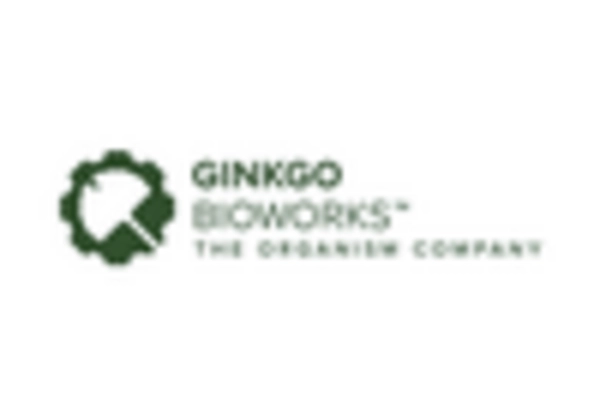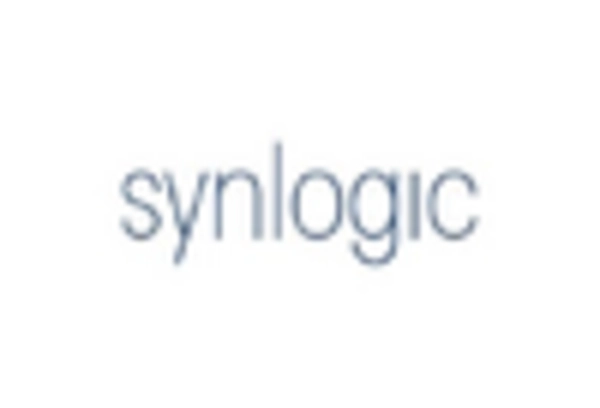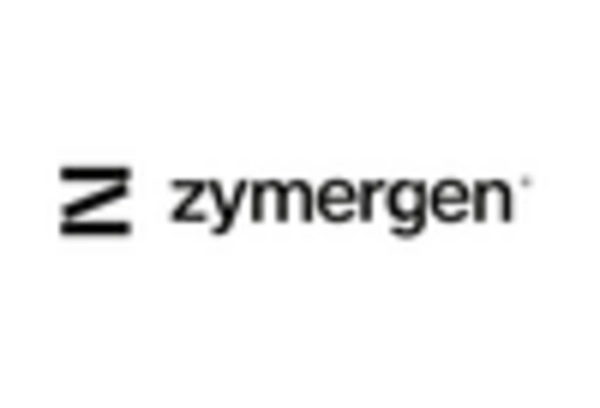Government Support and Funding
Government support and funding are pivotal in propelling the synthetic biology market. Various federal agencies, including the National Institutes of Health (NIH) and the Department of Energy (DOE), have recognized the potential of synthetic biology to address critical challenges in health, energy, and the environment. In recent years, funding for synthetic biology research has seen a substantial increase, with the NIH allocating over $1 billion annually to related projects. This financial backing fosters innovation and encourages collaboration between academia and industry, thereby enhancing the capabilities of the synthetic biology market. As public and private sectors continue to invest in this field, the market is likely to experience accelerated growth and technological advancements.
Consumer Awareness and Acceptance
Consumer awareness and acceptance of synthetic biology products are increasingly influencing the market landscape. As individuals become more informed about the benefits of synthetic biology, particularly in areas such as food production and healthcare, there is a growing willingness to embrace these innovations. Surveys indicate that approximately 60% of consumers in the US are open to purchasing products derived from synthetic biology, reflecting a shift in public perception. This trend is crucial for the synthetic biology market, as it drives demand for products that utilize synthetic biology techniques, such as lab-grown meats and bioengineered crops. The ability to communicate the safety and advantages of these products will be essential for further market expansion.
Rising Demand for Biopharmaceuticals
The increasing demand for biopharmaceuticals is a key driver in the synthetic biology market. As healthcare systems evolve, there is a notable shift towards biologics, which are derived from living organisms. The market for biopharmaceuticals is projected to reach approximately $500 billion by 2025, indicating a robust growth trajectory. This surge is largely attributed to the need for innovative therapies that can address complex diseases, including cancer and autoimmune disorders. Synthetic biology plays a crucial role in the development of these biologics, enabling the design of more effective and targeted treatments. The synthetic biology market is thus positioned to benefit significantly from this trend, as companies leverage advanced genetic engineering techniques to create novel therapeutics that meet the rising healthcare demands.
Innovations in Agricultural Biotechnology
Innovations in agricultural biotechnology are driving the synthetic biology market forward. With the global population expected to reach 9.7 billion by 2050, there is an urgent need for sustainable agricultural practices that can enhance food security. Synthetic biology offers solutions such as genetically modified organisms (GMOs) that can withstand environmental stresses and improve crop yields. The market for agricultural biotechnology is anticipated to grow at a CAGR of 10% through 2025, reflecting the increasing adoption of synthetic biology techniques in farming. This growth is indicative of the potential for synthetic biology market to revolutionize agriculture, providing tools that not only increase productivity but also reduce the environmental impact of farming practices.
Technological Advancements in Synthetic Biology Tools
Technological advancements in synthetic biology tools are reshaping the landscape of the synthetic biology market. Innovations such as CRISPR-Cas9 gene editing and advanced bioinformatics are enabling researchers to manipulate genetic material with unprecedented precision. These tools facilitate the rapid development of new applications across various sectors, including healthcare, agriculture, and environmental management. The synthetic biology market is witnessing a surge in startups and established companies investing in these technologies, with the market for synthetic biology tools projected to reach $10 billion by 2026. This growth underscores the importance of continuous innovation in driving the synthetic biology market forward, as enhanced tools lead to more efficient and effective solutions.


